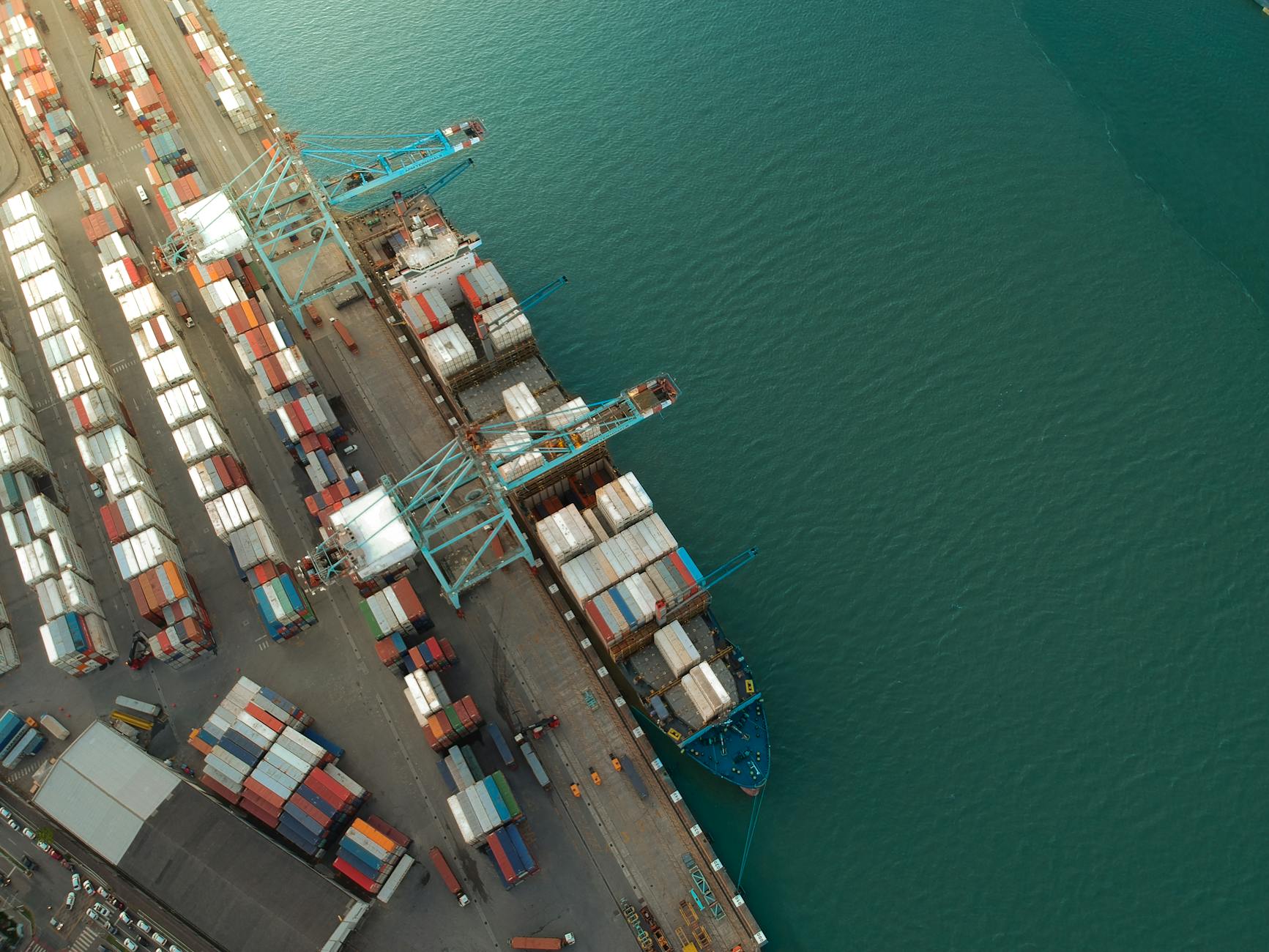Are You Optimising Your Business with Australia's Cutting-Edge 3PL Strategies?

Assessing 3PL Benefits
In the dynamic retail landscape of Melbourne, strategic use of third-party logistics (3PL) is pivotal for businesses aiming to boost efficiency while maintaining sustainable practices. When I examined successful case studies from Port of Melbourne distribution centres, it became clear how integrating pick packing can significantly align logistics operations with eco-friendly objectives.
Enhancing Eco-Friendly Practices
For businesses focused on sustainability, 3PL providers offer opportunities to enhance environmentally responsible practices. By engaging with a 3pl warehouse sydney, businesses can incorporate green methodologies, such as energy-efficient warehousing and eco-friendly packaging choices. This not only reflects well on your brand ethos but also resonates with the increasing consumer demand for sustainable products.
Boosting Operational Efficiency
Outsourcing logistics processes to a proficient 3PL can streamline operations and reduce resources spent on managing logistics internally. The ability to scale quickly without incurring additional infrastructure costs is an attractive benefit. With examples from the retail precincts at Chadstone showing improved supply chain efficiencies, it’s evident how these partnerships can support a business's growth trajectory while keeping a focus on sustainability.
Scaling Responsibly
As your business expands, a partnership with a mindful 3PL provider will enable you to scale responsibly. The tailored logistics solutions offered can adapt to fluctuating demand without compromising environmental standards. Thus, choosing the right partners becomes crucial for aligning growth with sustainable goals. With the right logistics partner, businesses can navigate through challenges, ensuring operations remain both efficient and eco-friendly.
Key 3PL Strategies
Sustainable Packaging Solutions
In Melbourne's bustling retail precincts at Chadstone, many small to mid-sized businesses are now prioritising sustainable packaging solutions to meet the increasing demand for eco-friendly products. As a strategic retail advisor, I often highlight the importance of examining third party logistics providers that offer recyclable and biodegradable materials. This not only reduces environmental impact but also aligns with the values of businesses like yours, focusing on sustainability.
Green Transportation Options
Green transportation is an emerging trend harnessed by various enterprises near the Port of Melbourne distribution centres. Consider opting for logistics partners utilising hybrid or electric vehicles to reduce carbon emissions during order fulfilment. Such a strategy not only contributes to a lower carbon footprint but also enhances your brand's image.
Waste Minimization Techniques
Efficient waste management is crucial for optimising your supply chain. Look at case studies from businesses in the Melbourne Central Business District that have effectively implemented waste minimisation techniques. These might include recycling programmes or reusing materials, significantly cutting down on landfill contributions. Embracing such strategies can bolster your eco-friendly credentials, creating a more sustainable business model.
Ultimately, adopting these 3PL strategies not only supports your company's operational goals but also ensures you remain at the forefront of sustainable business practices in the local community.
Choose Your Ideal Logistics Partner
Evaluating Eco Credentials
In Melbourne, where sustainability is no longer just a buzzword but a dynamic business necessity, selecting a third-party logistics partner demands a thorough evaluation of eco-credentials. It's pivotal to scrutinise how potential partners integrate sustainable logistics solutions into their operations. For instance, you might assess their carbon-neutral shipping options or their investment in 3PL logistics technologies.
Aligning with Brand Values
Aligning logistics operations with your brand’s core values extends beyond environmental considerations. Brands in areas like retail precincts at Chadstone often navigate the complexities of supply chain management while staying true to their identity. Delve into case studies of companies that have successfully partnered with logistics providers sharing similar values. This helps ensure that operational practices do not compromise your core commitments to sustainability and ethics.
Analyzing Service Offerings
When examining a logistics partner, full transparency in service offerings is essential. Evaluate their capabilities in scaling services according to your business growth while maintaining eco-friendly standards. Consider their proficiency in handling both small-scale and bulk orders efficiently, a service that aligns with the rapid pace of businesses in the Melbourne Central Business District.
By concentrating on these facets, you can maximise the synergy between your brand and your logistics partner, enhancing both operational efficiency and sustainable impact for your enterprise.
Best Practices for Implementation
Integrating Seamlessly with Operations
When considering integration with 3PL services, seamless alignment with existing operations is critical. Your business can benefit immensely from strategically chosen solutions. By conducting a thorough review of your supply chain processes, you can identify integration points where 3PL services can enhance efficiency. It's essential to involve all stakeholders during this phase to ensure a smooth transition and clear communication channels are established.
Monitoring Environmental Impact
Monitoring your environmental impact is non-negotiable when working with a 3PL provider. Leveraging advanced logistics technology can help track carbon emissions and assess the supplier's eco-friendly efforts. For instance, employing environmental data analytics enables real-time updates and more informed decision-making. Case studies reveal that businesses employing these tools often experience substantial reductions in their ecological footprint. By aligning your sustainability goals with available technology, you sharpen your competitive edge in Melbourne's eco-conscious retail markets.
Fostering Transparent Communication
Transparent communication underpins successful partnerships. Establishing a clear, two-way dialogue ensures all parties remain aligned on objectives. Regular meetings and open scorecards enhance transparency, allowing you to track progress against sustainability metrics. Transparent practices foster trust, aligning with ethical values while bolstering operational efficacy. Emulating this approach, as seen in various case studies, strengthens the relationship with your 3PL partner, ensuring that your eco-friendly goals are not just aspirational but measurable and attainable.
Common Pitfalls and How to Avoid Them
Overlooking Sustainability Metrics
When operating in dynamic retail precincts like Chadstone, it's tempting to zero in on immediate gains. However, bypassing sustainability metrics can derail long-term success. A notable case in the Melbourne Central Business District involved a retail chain facing fines due to carbon footprint violations. They pivoted by engaging a dedicated third-party provider that stressed sustainability metrics. Tracking these metrics not only elevates your brand but also aligns with Melbourne's carbon-neutral goals. Engaging systems like logistics technology solutions ensure you're keeping pace with local eco-regulations.
Ignoring Long-Term Partnership Potential
The allure of short-term partnerships can often overshadow the benefits of enduring alliances. At the Port of Melbourne distribution centres, many have learned the hard way. I recall a retailer who switched partners frequently, impacting service quality and increasing costs. Building a lasting partnership, similarly to those flourishing in Melbourne’s best retail sectors, fosters stability. It grants deeper insights into shared goals, like no-waste initiatives, as mutual trust is established.
Failing to Customize Solutions
Customisation is pivotal, especially given the diverse demands of small to mid-sized businesses. One Melbourne retailer I worked with initially struggled with an off-the-shelf solution that didn’t quite fit. By adopting a tailored approach, they were able to optimise their operations, improving their bottom line. Tailored supply chain optimisation not only enhances operations but also aligns with the unique rhythm of Melbourne’s retail life. Always seek to merge flexibility with your operational strategy to remain agile and responsive to market demands.


